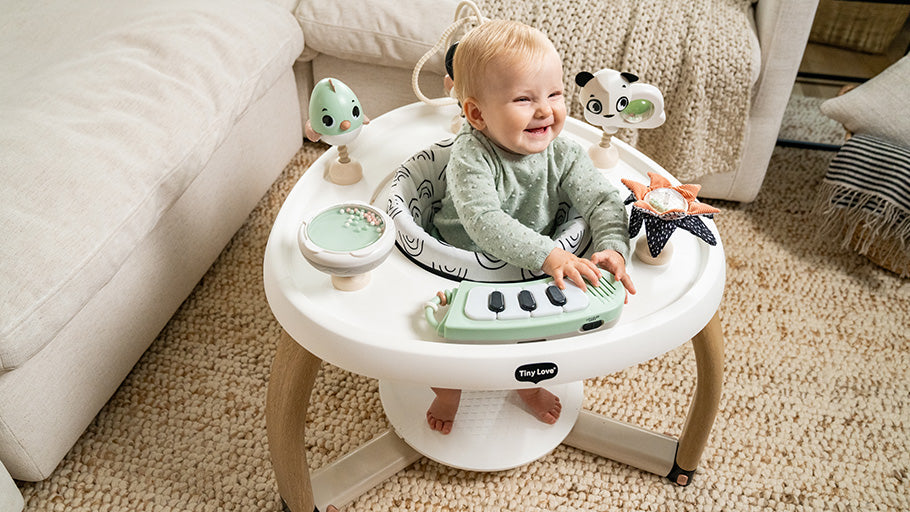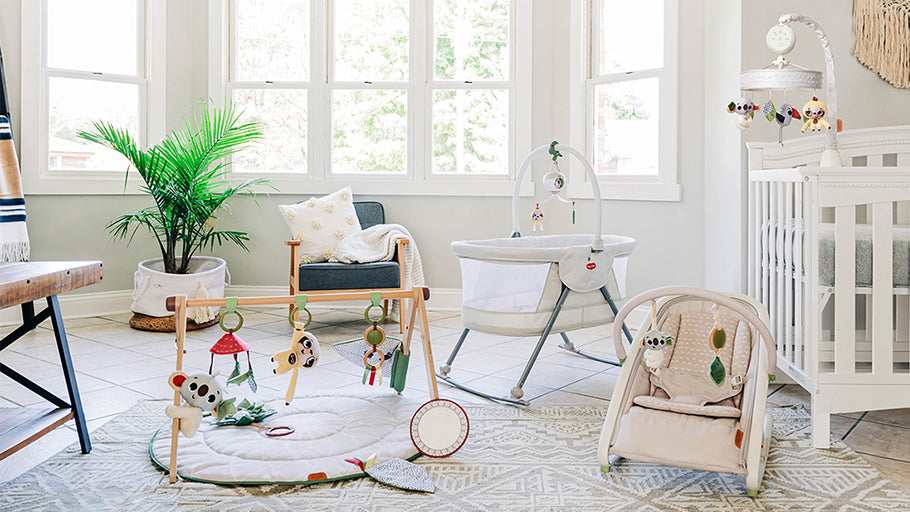Books play a significant part in supporting baby’s growth and development by enriching their language and introducing them to the social world they are living in. However, studies find it is not just a matter of the words spoken but of the unique interaction between storyteller and child.
Development and Language Acquisition
Books play a significant part in supporting baby’s growth and development by enriching their language and introducing them to the social world they are living in. However, studies find it is not just a matter of the words spoken or the story narrated, but of the unique interaction between storyteller and child.
During the first months of a baby’s life, the parent and child develop a unique parent-child couple relationship referred to as a Dyad. This Dyad includes touching, movement, and a mutual exchange of messages. This communication will usually be nonverbal and accompanied by gestures, smiles and sounds (tickling, playing catch, peek-a-boo games, lifting the child up in the air and more). After baby’s first birthday, this unique relationship is supplemented by the all-important object, which allows parent and baby to focus together on something else – a book, a toy, etc. This joint experience is of great importance in a child’s process of language acquisition.

Toys and books are an excellent way of initiating interaction between parents and child to advance development and knowledge.
The importance of Interaction in Learning a Language
In the last few years, many studies have highlighted the significant role that books play in baby’s development. However, the advantages of book reading don’t come simply from the act of hearing language spoken but from the way they encourage dialogue between parents and their young children, even babies who are just a few months old. Research has found that activity in babies’ brains associated with the process of acquiring a language can be seen following playing and interacting with an adult in a specific language, even a language that isn’t the baby’s native tongue. However, just hearing the language recorded without any human interaction did not show similar results. In other words, as the great Lev Vygotsky and other developmental psychologists have claimed over the years, the optimal process of learning depends on a meaningful interaction between adult and baby. Toys and books are an excellent way of initiating this significant interaction between parents and child to advance development and knowledge. Create a book of your very own with our
cute Digital Book activity and make your baby the lead character of the story.
So, reading simple books and storytelling is a wonderful way of enriching baby’s process of language acquisition and the development of social skills.
What are the most important things to notice when reading to your baby?
The following insights could help you make reading with baby all the more rewarding.
1. Interact with your child while reading: Reading a book to your baby is an ideal way of focusing attention together. It’s a wonderful opportunity for adults to introduce babies to new knowledge and the components of language. Many researchers have found that this joint activity greatly contributes to the process of learning a language. These studies also found that interactive reading, which included asking questions, assessing the child’s reactions and repeating the child’s reactions increased the value of the reading experience.
2. Including your baby in the conversation: Different parents have different styles of storytelling. Some parents simply read the book aloud, others point a lot to various illustrations and some use the book as a way of conversing with their child. Research shows that talking with the child and using the book as a basis for an exchange was more encouraging of a child’s vocabulary and grammatical knowledge than simply pointing to the illustrations or reading the book out word for word.
3. Reading the same story over again: Various researchers have found that the (at times challenging!) process of reading the same book over and over again to your child has real value. When a young child is already familiar with a story, they can become more involved in a conversation, ask more questions and relate to the characters. Re-reading the same story makes a young child more involved and increases interest in the language involved.
4. Talking about the characters: Reading books doesn’t only support language acquisition, it also supports the development of other fundamental skills in baby’s development. Talking about the characters, what they feel, why they’re doing what they’re doing, etc. helps babies and toddlers develop social skills, understand more complex social situations and encourages various aspects of their emotional intelligence.
So, reading simple books and storytelling is a wonderful way of enriching baby’s process of language acquisition and the development of social skills. This significant first steps can help set baby on the right path for a future of growth and learning.
Take a look at Tiny Love's unique Digital Book activity to create your own book.




